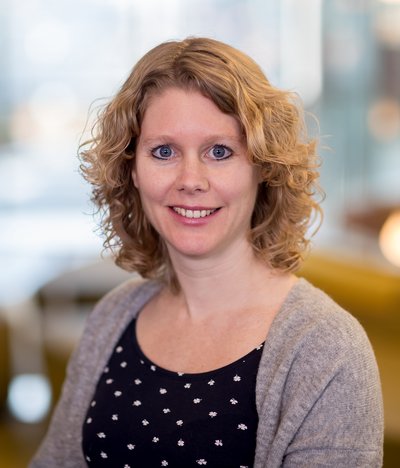Sandra Loerakker

RESEARCH PROFILE
Sandra Loerakker is an associate professor at the TU/e department of Biomedical Engineering (research group Soft Tissue Engineering and Mechanobiology). Her research focuses on modeling the mechanobiology of native and engineered tissues using integrated computational and experimental methods, in order to obtain an improved understanding of the biological mechanisms responsible for soft tissue development, homeostasis, and disease, and to translate those findings into novel therapies in the field of regenerative medicine. She primarily focuses on understanding how mechanical factors drive soft tissue growth and remodeling at different spatial and temporal scales.
Computational modeling has critically advanced our understanding of growth and remodeling of engineered cardiovascular tissues.
ACADEMIC BACKGROUND
Sandra Loerakker was trained in Biomedical Engineering at Eindhoven University of Technology (TU/e) where she obtained both her BSc and MSc degrees cum laude. In 2007, she started her PhD research on the etiology and early detection of deep pressure ulcers in skeletal muscle, using a combination of computational and experimental methods. She performed part of this research at Northwestern University (USA) and in collaboration with the University of Alberta (Canada). After defending her PhD thesis at TU/e in 2011, for which she received the Best Doctoral Thesis Award (2012) from the European Society of Biomechanics and the Novice Investigator Award (2012) from the European Pressure Ulcer Advisory Panel, she continued as a postdoctoral researcher in heart valve biomechanics and mechanobiology. In 2015, she was appointed as assistant professor in Modeling in Mechanobiology at the TU/e department of Biomedical Engineering, focusing on understanding the mechanobiology of native and engineered tissues using integrated computational and experimental methods. From May 2016 – April 2017, supported by a Marie Curie Individual Fellowship, she was a visiting assistant professor at Stanford University (USA). She received an ERC Starting Grant in 2018 to explore the interplay between mechanics and cell-cell signaling in the context of cardiovascular regeneration. She was promoted to associate professor in 2019. In 2022, she received a prestigious VIDI grant from the Dutch Science Foundation (NWO), and she was elected as Best Master Teacher of the academic year 2021-2022 at TU/e.
Recent Publications
-
Jordy G.M. van Asten,Marcos Latorre,Cansu Karakaya,Frank P.T. Baaijens,Cecilia M. Sahlgren,Tommaso Ristori,Jay D. Humphrey,Sandra Loerakker
A multiscale computational model of arterial growth and remodeling including Notch signaling
Biomechanics and Modeling in Mechanobiology (2023) -
Maria J. Hagelaars,Laura Rijns,Patricia Dankers,Sandra Loerakker,Carlijn Bouten
Engineering strategies to move from understanding to steering renal tubulogenesis
Tissue Engineering. Part B, reviews (2023) -
Sandra Loerakker,Jay D. Humphrey
Computer Model-Driven Design in Cardiovascular Regenerative Medicine
Annals of Biomedical Engineering (2023) -
Jordy G.M. van Asten,Tommaso Ristori,David R. Nolan,Caitríona Lally,Frank P.T. Baaijens,Cecilia M. Sahlgren,Sandra Loerakker
Computational analysis of the role of mechanosensitive Notch signaling in arterial adaptation to hypertension
Journal of the Mechanical Behavior of Biomedical Materials (2022) -
Cansu Karakaya,Mark C. van Turnhout,Valery L. Visser,Tommaso Ristori,Carlijn V.C. Bouten,Cecilia M. Sahlgren,Sandra Loerakker
Notch signaling regulates strain-mediated phenotypic switching of vascular smooth muscle cells
Frontiers in Cell and Developmental Biology (2022)
Current Educational Activities
Ancillary Activities
- Visiting Professor, University of Zurich